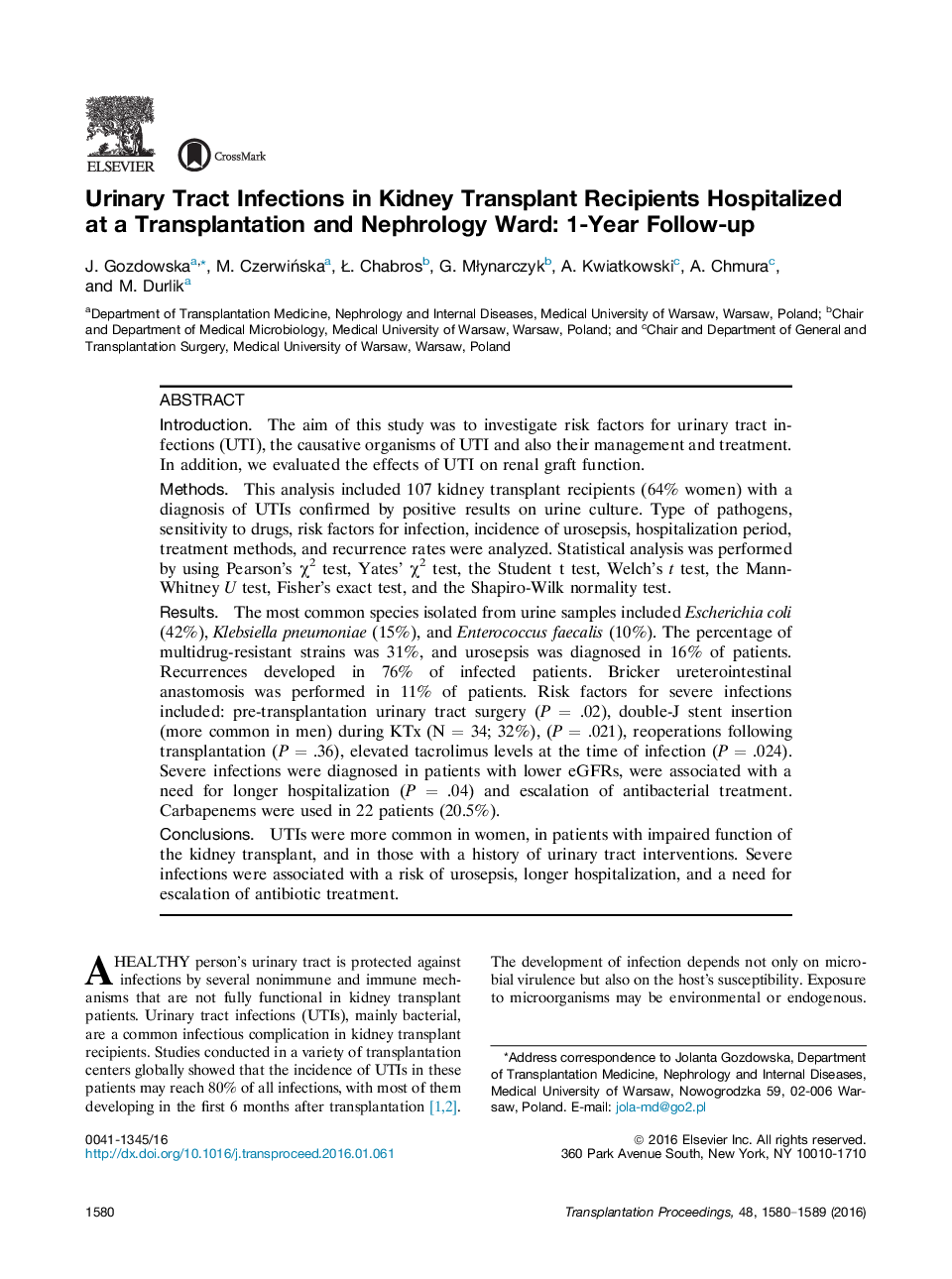| Article ID | Journal | Published Year | Pages | File Type |
|---|---|---|---|---|
| 4256077 | Transplantation Proceedings | 2016 | 10 Pages |
•Urinary tract infection (UTI) is the most common cause of bacterial infections in kidney transplant patients.•Female patients are more susceptible to the development of UTIs due to anatomical and physiological conditions.•UTIs may indirectly affect survival and transplant status, resulting in bacteremia or episodes of acute rejection, or they may create favorable conditions for viral infections, including infection with cytomegalovirus.•In many reports, the growing incidence of infections with multidrug-resistant strains is indicated, especially with Enterobacteriaceae bacilli containing extended-spectrum beta-lactamases.
IntroductionThe aim of this study was to investigate risk factors for urinary tract infections (UTI), the causative organisms of UTI and also their management and treatment. In addition, we evaluated the effects of UTI on renal graft function.MethodsThis analysis included 107 kidney transplant recipients (64% women) with a diagnosis of UTIs confirmed by positive results on urine culture. Type of pathogens, sensitivity to drugs, risk factors for infection, incidence of urosepsis, hospitalization period, treatment methods, and recurrence rates were analyzed. Statistical analysis was performed by using Pearson's χ2 test, Yates' χ2 test, the Student t test, Welch's t test, the Mann-Whitney U test, Fisher's exact test, and the Shapiro-Wilk normality test.ResultsThe most common species isolated from urine samples included Escherichia coli (42%), Klebsiella pneumoniae (15%), and Enterococcus faecalis (10%). The percentage of multidrug-resistant strains was 31%, and urosepsis was diagnosed in 16% of patients. Recurrences developed in 76% of infected patients. Bricker ureterointestinal anastomosis was performed in 11% of patients. Risk factors for severe infections included: pre-transplantation urinary tract surgery (P = .02), double-J stent insertion (more common in men) during KTx (N = 34; 32%), (P = .021), reoperations following transplantation (P = .36), elevated tacrolimus levels at the time of infection (P = .024). Severe infections were diagnosed in patients with lower eGFRs, were associated with a need for longer hospitalization (P = .04) and escalation of antibacterial treatment. Carbapenems were used in 22 patients (20.5%).ConclusionsUTIs were more common in women, in patients with impaired function of the kidney transplant, and in those with a history of urinary tract interventions. Severe infections were associated with a risk of urosepsis, longer hospitalization, and a need for escalation of antibiotic treatment.
